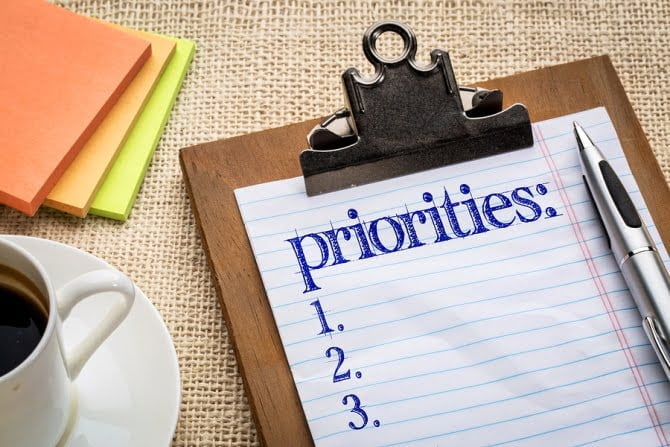January 2, 2021 - By: Brandon Jenkins
“You will only be remembered for two things: the problems you solve or the one you create.”
– Mike Murdock, American preacher

While inheritances are largely thought of in terms of financial legacies, there are many things that we “leave” for our children, including things they may not want! Our financial, emotional, physical, intellectual and spiritual legacy is hopefully a positive one, not one that burdens them.
Whether or not you have life insurance, assets, or a sizable estate that may one day be an financial legacy, here are five things that your children – however young or old they may be – are hoping you DON’T leave them.
1. A house full of clutter.
An acquaintance of ours just took 8 months off of work to sort through the packed basement, attic, closets, and rooms of her father’s home after his passing.
When one sister left her four-bedroom house full of things to her surviving sister to deal with, it took a high emotional and physical toll to have to clear the home of decades of “stuff,” not to mention deal with overdue repairs.
Another woman took trips from Seattle to the East Coast for over a year to clear the mountain of belongings and paperwork out of her father’s home… and she was not without assistance.
Yes, there are those who can be hired to help in such circumstances, such as professional organizers who specialize in clearing estates. However, it can be difficult for family members to delegate such tasks of sorting through family treasures—and family junk—to strangers, even when the personal cost of not getting help can be high.
Start giving things away now. Don’t leave all the “stuff” stored in your attic, basement, garage or junk room for your loved ones to sift through someday. Give the treasures to family members who appreciate them, and don’t stop until the clutter is gone and nothing but a few boxes of holiday decorations remain.
If you need help or find yourself overwhelmed to the point of inaction, hire out or call on family members. It is far more satisfying to have a family garage sale and recycle/donation weekend during the good times than to have to sift through piles of belongings during a time of grief.
“Lighten Up” workshop creator Laura Lavigne teaches clients a mantra to help them sort. “Is an object ‘actively used or deeply cherished’? If not, let it go.” Lightening your load will lessen your burden and help you to leave a better legacy.
2. A paperwork mess
Todd Tresidder shared a heart-breaking story on his blog about the aftermath of his father-in-law’s passing and the legacy he didn’t intend to leave. Unfortunately, his family’s experience is not uncommon.
Todd’s father-in-law was a good man with good intentions. However, he left one heck of a mess for his loved ones. Not only did the family have to confront a storage locker full of useless, outdated junk, they had other, more difficult challenges left by his unfinished business.
As Todd tells it, his father-in-law had always planned on “getting his accounting records together and filing several years of delinquent, back taxes.” But he passed away unexpectedly before he even turned 65, leaving his children with the impossible task of preparing tax returns with incomplete records.
And the hassle was only the beginning. “They had to personally sign and take on liability for those back taxes,” said Todd. “He planned on living longer and eventually getting around to these things, but he never did. Life had a different plan….”
Don’t leave the paperwork you didn’t want to deal with to others. If you don’t want to tackle this burdensome task, your children certainly don’t either! Hire a bookkeeper, an accountant, or whoever you need to sort it out. Ask for help from the family if you are unable to deal with it yourself, they would rather help you now than be left with your mess later.

3. A mountain of debt.
The woman who left behind her 4-bedroom house full of things also left behind tens of thousands in credit card debt from years of living beyond her means.
Todd’s father-in-law had dropped his health insurance because it was “too expensive.” He thought he could do without it until he was old enough for Medicare to replace it, but he never made it. His children were left to negotiate and settle a pile of medical bills that consumed their father’s life savings and bankrupted his estate.
And every day, people die without proper estate planning or trusts that leave their heirs responsible for settling debts.
One reason we advocate for whole life insurance is that the death benefit can replace assets that must be spent when “life happens,” or when the paid-off house must be sold or mortgaged to fund long-term care. And now there are whole life insurance policies with riders that allow a sizeable part of the death benefit to be spent on long-term care while the insured is still living, helping them to avoid either running out of money due to medical bills, or the possibility of paying for long-term care insurance that is never needed.
One way or another, find a way to resolve your debts. If you are unable to repay your debts or settle them for a negotiated amount, then bankruptcy might be a viable alternative. A major reason people enter into bankruptcy is because it offers them protection from their creditors. Bankruptcy also offers the same protection to a person’s estate, thus protecting heirs who would otherwise have to pay debts from the proceeds of the liquidated estate.
4. A Family Feud
One way to start a family feud is to leave siblings with differing amounts of an estate. And regardless of their financial habits or history, anything other than an equal split is likely to leave someone crying “unfair!”
Another way to start a family feud is to not have an up-to-date estate plan in place. Too many people “intend” to organize their financial affairs and assemble an estate plan. Instead, they left a mess of contradictory documents and incomplete plans that pit family members against each other.
Failure to keep beneficiaries up to date can also create chaos and ill will. Sometimes, divorced spouses or divorced spouses of children are still listed as beneficiaries of an estate, while younger grandchildren, nieces or nephews (born since the last updated will) have never been added! Clearly, that was not what was intended.
Be clear, consistent, and complete with your estate plans. Establish a will, and a trust, if applicable to your situation. Update it every few years, or at the very least, when there is a change in the family structure of a family, such as a death or divorce.
Need help to get started? Contact the National Network of Estate Planning Attorneys, they have an excellent process to help families communicate effectively.
5. Confusion and a lack of communication.
Lenore Vassil created TheTorch.com as the result of her father’s illness, which left him temporarily unable to run the household or pay the bills. Following that experience, she watched as a pregnant friend lost her boyfriend and father of her unborn child in an accident. The family searched for weeks, not knowing if there was a life insurance policy or not.
Family members may talk frequently, but are they having conversations about the things that would really matter in an emergency? Usually not. The lack of communication creates pain and confusion as those remaining are left to wonder:
- What lawyer, financial advisor, CPA or insurance agent should be contacted?
- Where are the important documents stored, and which documents should we expect to find?
- Who is the family doctor, and is there a durable POA?
- How does the mortgage get paid, anyway? Knowing what bills are on “autopilot,” which aren’t, and how the family financials are tracked is crucial.
- Then there are the more personal logistics… Where are the car keys? Are there instructions for taking proper care of the dog? And the list goes on.
Communicate thoroughly and pro-actively. My grandmother had a green notebook that listed all of the essential information and detailed where to find what, and everyone knew where the green notebook was. TheTorch.com does what my grandmother’s green notebook did, but it’s easy, digital, and can be updated and shared with others across the country. Best yet, it thinks of everything so you don’t have to. Start an account and share the five most important things your loved ones need to know for free.

Get Started on Your To-Do List Now
It’s easy for an article like this to invoke feelings of overwhelm. But if YOU’RE overwhelmed by your unfinished business, do you really want to leave it to your loved ones to complete?
Anything that drains your energy will become an energy drain for your loved ones if—or rather, when—something happens to you. So start finishing your unfinished business today. It doesn’t matter that you may well live 30 or 40 more years, because who wants to live that long with unfinished business hanging over their head!?
Envision what you would like to leave for your loved ones—beyond the financial legacy. And if you assess that you are in danger of leaving a legacy of clutter, confusion, and unfinished business, then start taking action now. Make a list and set aside time to work on your list. With regular action-taking, you’ll be able to celebrate having your “ducks in a row” before you know it.
And, of course, let us know how we can assist you! Whether it’s financial guidance, life insurance, an estate planning referral, or something else, we’re here to help.
©Prosperity Economics Movement
